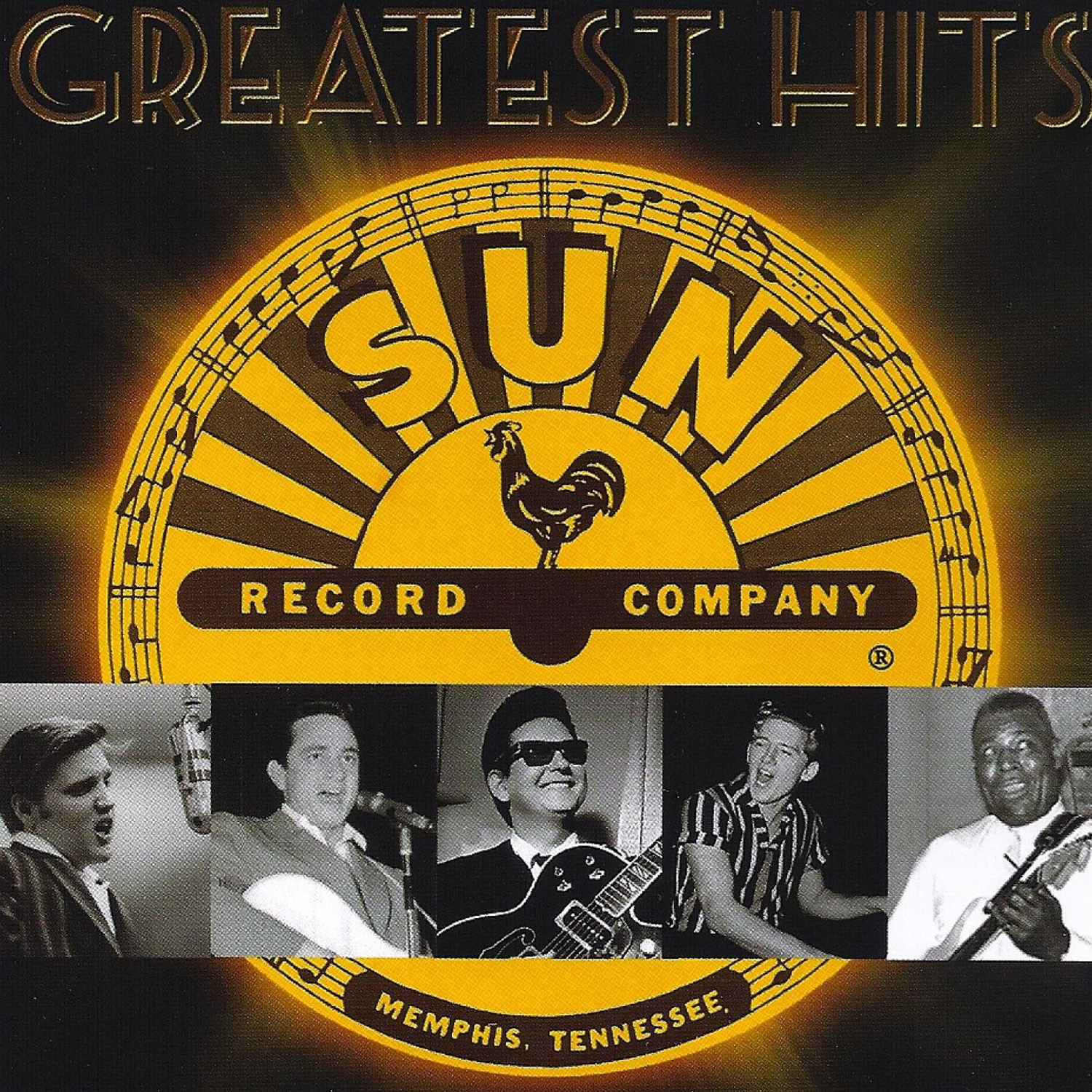Elvis Presley Biography
Elvis Aaron Presley, in the humblest of circumstances, was born to Vernon and Gladys Presley in a two-room house in Tupelo, Mississippi on January 8, 1935. His twin brother, Jessie Garon, was stillborn, leaving Elvis to grow up as an only child. He and his parents moved to Memphis, Tennessee in 1948, and Elvis graduated from Humes High School there in 1953.
Elvis’ musical influences were the pop and country music of the time, the gospel music he heard in church and at the all-night gospel sings he frequently attended, and the black R&B he absorbed on historic Beale Street as a Memphis teenager. In 1954, he began his singing career with the legendary Sun Records label in Memphis. In late 1955, his recording contract was sold to RCA Victor. By 1956, he was an international sensation. With a sound and style that uniquely combined his diverse musical influences and blurred and challenged the social and racial barriers of the time, he ushered in a whole new era of American music and popular culture.
He starred in 33 successful films, made history with his television appearances and specials, and knew great acclaim through his many, often record-breaking, live concert performances on tour and in Las Vegas. Globally, he has sold over one billion records, more than any other artist. His American sales have earned him gold, platinum or multi-platinum awards for 150 different albums and singles, far more than any other artist. Among his many awards and accolades were 14 Grammy nominations (3 wins) from the National Academy of Recording Arts & Sciences, the Grammy Lifetime Achievement Award, which he received at age 36, and his being named One of the Ten Outstanding Young Men of the Nation for 1970 by the United States Jaycees. Without any of the special privileges his celebrity status might have afforded him, he honorably served his country in the U.S. Army.
His talent, good looks, sensuality, charisma, and good humor endeared him to millions, as did the humility and human kindness he demonstrated throughout his life. Known the world over by his first name, he is regarded as one of the most important figures of twentieth century popular culture. Elvis died at his Memphis home, Graceland, on August 16, 1977.
June 3, 1953
Elvis graduates from Humes High School.
1953
Elvis works at Parker Machinists Shop right after graduation. That summer he drops by The Memphis Recording Service, home of the Sun label and makes a demo acetate of “My Happiness” and “That’s When Your Heartaches Begin” for a cost of about $4.00. (The studio came to be known as Sun Studio though never officially named that until the 1980s. For simplicity this text uses the name Sun Studio.) The studio owner isn’t in, so his assistant, Marion Keisker handles the session. Elvis wants to see what his voice sounds like on a record and he has aspirations to become a professional singer. He takes the acetate home, and reportedly gives it to his mother as a much-belated extra birthday present. By the fall, he is working at Precision Tool Company, and soon changes jobs again, going to work for Crown Electric Company. At Crown, he does various jobs, including driving a delivery truck. He also goes to night school and studies to be an electrician.
January, 1954
Elvis makes another demo acetate at Sun. Sam Phillips, the owner, is in this time and, like Marion Keisker, is intrigued by this unusual looking and sounding young man.
Summer 1954
At Marion Keisker’s suggestion, Sam Phillips calls Elvis into the studio to try singing a song Sam hopes to put out on record. The song is “Without You” and Elvis does not sing it to Sam’s satisfaction. Sam asks Elvis what he can sing, and Elvis runs through a number of popular tunes. Sam is impressed enough to team Elvis up with local musicians Scotty Moore (guitar) and Bill Black (bass) to see if they, together, can come up with something worthwhile. Nothing really clicks until July 5, when after a tedious session, Elvis and the guys break into a sped-up version of Arthur “Big Boy” Crudup’s “That’s All Right.” This song, backed with Blue Moon of Kentucky becomes the first of five singles Elvis will release on the Sun label. Elvis, Scotty, and Bill start performing together, with Scotty acting as the group’s manager. Elvis continues to work at Crown Electric as the group starts to play small clubs and other small time gigs locally and throughout the South, enjoying moderate success with the records and personal appearances. Elvis’ one appearance on the Grand Ole Opry doesn’t go over particularly well, with one of the Opry officials reportedly suggesting that Elvis go back to driving a truck. The Opry is very important at this time. This is a painful disappointment in Elvis’ early career.
Elvis, Scotty, and Bill continue to record and to travel.
October 16, 1954
They appear for the first time on the Louisiana Hayride, a live Saturday night country music radio show originating in Shreveport, Louisiana, broadcast over KWKH Radio. The show is the Grand Ole Opry’s chief competitor, carried by 190 stations in thirteen states. This leads to regular appearances on the Hayride and, in November, Elvis signs a one-year contract for fifty-two Saturday night appearances. This is a great break, but as Elvis’ popularity grows, his commitment to the Hayride prevents him from traveling much outside the South to further his career on a larger scale. During Elvis’ association with the Hayride he meets “Colonel” Tom Parker, a promoter and manager connected with various acts, and connected with the Louisiana Hayride. Parker is also the manager for country star, Hank Snow. A previous Parker client is country star Eddy Arnold.
January 1955
Elvis signs a contract with Bob Neal, who becomes his manager.
1955
Elvis, Scotty, and Bill continue touring on their own and in package shows with various country stars, including package tours of artists from the Hayride. Colonel Parker is involved. This includes touring with Hank Snow. The regular Hayride appearances continue. Drummer D.J. Fontana joins Elvis’ band. In the spring, Elvis fails to be accepted on Arthur Godfrey’s Talent Scouts, a network television show. As always, Elvis’ live appearances have special appeal for the teenagers, especially the females. His unusual style, sexy moves, and good looks start to cause more and more excitement wherever he plays. Sometimes the crowds break through the barricades in near-riot behavior. Elvis gains more and more popularity and begins to receive national attention. Colonel Parker becomes more involved in Elvis’ career.
August 15, 1955
Elvis signs a management contract with Hank Snow Attractions, which is owned equally by Snow and Colonel Tom Parker. Bob Neal remains involved as an adviser. Colonel Parker is to be Elvis’ exclusive manager from this time on, and Snow is soon no longer connected to Elvis.
November 20, 1955
Elvis signs his first contract with RCA Records. Colonel Parker negotiates the sale of Elvis’ Sun contract to RCA, which includes his five Sun singles and his unreleased Sun material. The price is an unprecedented $40,000, with a $5,000 bonus for Elvis. RCA soon re-releases the five Sun singles on the RCA label. At the same time Elvis signs a contract with Hill and Range Publishing Company, which is to set up a separate firm called Elvis Presley Music, Inc. Elvis will share with Hill and Range the publishing ownership of songs bought by Hill and Range for him to record.
Elvis is the hottest new star in the music business.
[Used with Premission – Source: Elvis.com]


